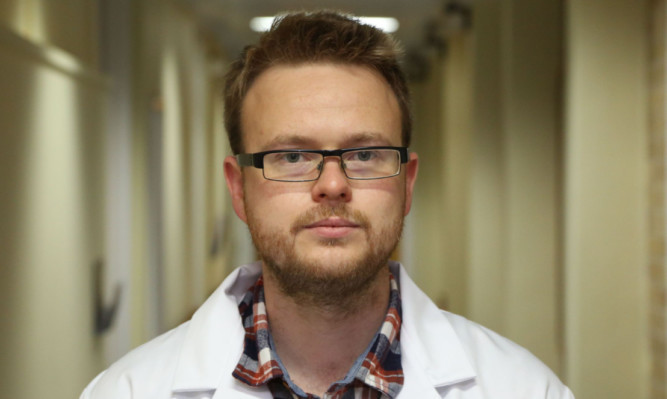Start-up businesses from Dundee and St Andrews universities have taken two of the top three places at a national competition for academic entrepreneurs.
Muhammad Sadiq’s Ultravizion, which uses ‘Active Needle’ technology to enable clinicians to see needles in colour during ultrasound procedures, finished in second place.
The St Andrews partnership of Alexander Ward, Jack Barraclough and Clifford Hicks took bronze.
The trio’s Razorbill Instruments produces a machine capable of precise movement at nano-scale, for use in microchip manufacture, physics and biomedical research.
The overall winner was Strathclyde University-based Savitur Metrics, led by Claudia Chen.
Speaking at the final earlier this week, chief scientific adviser to the president of the European Commission Professor Anne Glover said the contest was a great example of how university research could contribute to the economy.
“Yet again, the spirit of academic innovation and enterprise emanating from the university campuses in Scotland reinforces how students and academic staff are engaged with Converge Challenge,” she said.
“For five years now, Converge has been a shining beacon of academic flair and entrepreneurship, giving participants an opportunity to crystallise their research and inventions.
“Converge Challenge is now synonymous as the key competition for academic enterprise, and its year-on-year growth has been testament to its enduring success. The Converge Challenge is a great example of academic excellence having a real impact on the economy.”
The competition, which was established at Edinburgh’s Heriot-Watt University in 2010, continues to attract a growing number of applicants. This year’s total of 111 entries was a record, and marked a significant spike on last year’s tally.
As well as offering the largest cash prize of its type, the event which styles itself as the “flagship entrepreneurial business competition for academics” gives students and members of staff of all Scottish university and research institutes access to training and support to develop their skills and explore the commercial potential of their inventions.
The Scottish Funding Council pledged £525,000 to support the event for three years as part of its 2013 round of awards, with Aberdeen, Dundee, Edinburgh, Glasgow, Heriot-Watt, St Andrews, Stirling and Strathclyde universities also providing financial support.
Training and prizes were jointly funded by the eight institutions.
It is open to all Scottish universities and research institutions.
